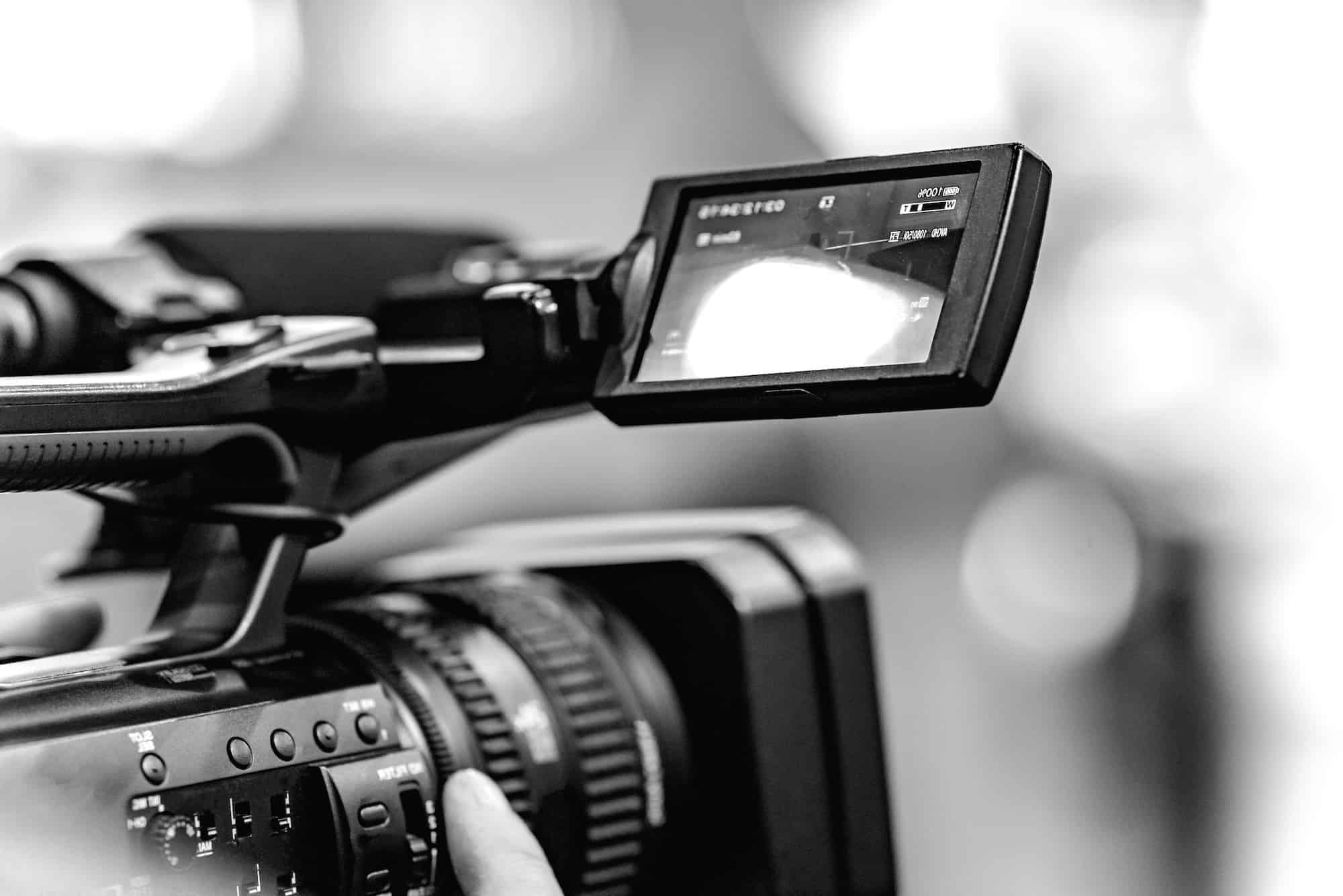
18 Jun How Does A Video Deposition Work?
How Does A Video Deposition Work?
There is no doubt that video is an unmatched medium in which to capture a moment. A picture may be worth a thousand words but a video’s ability to capture moments, expressions and actions are invaluable.
Videography plays an important part in all of our lives. We live in a time where there are more videos being recorded, uploaded and shared than ever before.
Videography is not just for cat videos and Youtube though, videography plays an important and essential role in the legal world as well. A video deposition is a powerful way to record the testimony of an expert witness and can often have a powerful effect on a jury and the outcome of a case.
So, how does a video deposition work? Video depositions consist of the following steps:
- An attorney hires a legal videographer.
- The legal videographer captures footage of a witness being deposed.
- Once the footage has been taken, the legal videographer edits the footage and then sends it back to the attorney who hired them.
- The footage is used in court proceedings to help determine the outcome of a case.
While this is how a deposition works in a nutshell, let’s examine the process in more detail in hopes that you’ll better understand how a video deposition works and in what instances it may be useful. Whether you are an attorney considering whether to videotape your depositions for a current case or a witness preparing for your first recorded testimony my hope is to help you better understand how a video deposition works and how it might be helpful to you.
What is a Video Deposition?
A deposition is a process of giving sworn evidence, a formal written statement by a witness in a legal matter. A video deposition will also include a transcript of the testimony. The transcript of the testimony and the video will often be synchronized. Deposition synchronizing is the process of linking the deposition video file to the transcript of the testimony. The end result is similar to captions when you are watching television. The video deposition is the finished product of the recorded testimony of the expert witness synchronized with the transcript recorded by a court reporter.
How Does a Video Deposition Work?
In most cases, an attorney will hire a court reporter and videographer to record the deposition and coordinate with them and the expert witness to record the deposition.
The attorney and videographer will help prepare the witness for giving their testimony. Usually advising them to avoid doing distracting things on video like clicking a pen, fidgeting, sitting with bad posture and other ticks that might be distracting to the statement of the witness.
The video deposition will be recorded and the statement transcribed by a court reporter. Then the transcript and video will be synchronized and the video deposition will be used in the case as seen useful or best by the attorney.
Some lawyers see video depositions as only being useful as an emergency measure. If the witness is very ill, flees or is unable to testify in court. Some lawyers see great value in videotaping depositions and go as far as to record all their depositions.
“If a deposition is not worth videotaping, it’s not worth taking the deposition.” said one lawyer when discussing why he videotapes all of his depositions. He added, “Videotape depositions capture the witness’s facial expressions, pauses, change in voice tone and mannerisms that are never visible on a deposition transcript alone. Such subtleties can make or break your case.”
There are many situations when a video deposition may be needed and helpful to a case. When used correctly a good video deposition can be a powerful and integral part of a legal case. A good videographer and court reporter can be invaluable resources for an attorney to utilize.
Situations Where a Video Deposition May Be Helpful
It is very common to use selected portions of video testimony to impeach a witness if they change their story at trial. When a jury sees a witness contradict themselves on video it has a much greater psychological impact than simply reading the contradiction from a written transcript.
As we have mentioned already a video testimony may also be necessary to preserve a witness’s testimony in case of the witness’s untimely death or if they become ill. Video testimony is useful in any case where circumstances may make it impossible for the witness to testify in person in a trial.
Finally, video depositions can be useful when working with expert consultants and other legal staff that may not be able to attend a deposition. The video testimony can be reviewed under the scrutiny of these other legal professionals to help gain improved insights into the case and catch things that may have been missed in a live setting.
Video depositions are often used as well for mock trials and focus groups.
Benefits of Video Depositions
Visual Testimony is Often More Impactful Then Reading a Deposition Transcript Aloud
We are always talking even when we are not saying anything out loud. Our body language and microexpressions send out thousands of signals about how we are feeling and what we are thinking about.
As humans, we are highly visual beings hardwired to process thousands of these subtle signals subconsciously every second of the day. A written transcript of a witness testimony read aloud at a trial lacks these subtle subconscious details of body language and tone.
There is also a risk of the words of the transcript being interpreted differently when they are read aloud because of the tone or body language of the person reading the transcript. The reading of a deposition can often be boring and uninteresting to a juror and if the human mind is not interested it does not pay attention which is the exact opposite of what you want from a jury.
Video depositions not only allow for a greater range of expression to be captured and communicated but they are also better for holding the interest and attention of a jury.
One lawyer in a medical malpractice case stated that the turning point of the case hung on the way a nurse responded to a question in a video deposition. It was not what she said but how she said that swayed the minds of the jurors.
In this particular case, the attorney won a 4.1 Million dollar recovery for their client which made the money spent on a video deposition seem well worth it and shows the impact a video deposition can have.
Video Depositions Are Useful for Impeaching a Witness
Witness impeachment is the process of calling into question the credibility of a witness in a trial. In the United States, a party has the ability to discredit a witness through impeachment through cross-examination of the witness.
They may question the witness about facts of their testimony or introduce extrinsic evidence that conflicts or discredits the truthfulness or knowledge of the witness.
An attorney will usually attempt to discredit a witness according to the following criteria.
- Bias
- Inconsistent Statement
- Character
- Competency
- Contradiction
Video testimony is especially useful for impeaching a witness on the basis of contradiction or an inconsistent statement. Seeing a witness contradict themselves on video is often more impactful than simply reading the transcript of a contradictory statement aloud at a trial aloud in a deposition read back.
Video Depositions Can Help Save Time and Money
In some states, California for example, video depositions can be used in a trial even if the witness is available to testify in court. They can also be useful for collaboration among a legal team and in coordinating with other legal consultants and experts.
Expert legal consultants can review the testimony of a video deposition and contribute to a case even when they are not able to attend the deposition in person. This can help the legal team gain valuable insights they may have otherwise missed and helped the group save time and money by allowing some of the work to be done remotely.
What Is Needed for a Video Deposition Besides a Videographer?
Space for the deposition to be filmed that is quiet and free of clutter and excessive background noise. You want a private space where the expert witness can be comfortable giving their testimony on film and that is accessible for all parties involved with the deposition.
You will also want a court reporter to record the official transcript of the deposition. After recording the deposition the official transcript from the court reporter can be synchronized to the video deposition to provide a synchronized deposition.
Can a video deposition be used in a trial?
Yes. Video depositions can be a very powerful way to present a witness’s testimony in a trial and be very impacting on jurors.
Can a video deposition be used in place of live testimony?
Every state will have different laws that dictate whether a video testimony can be used in court even if the witness is available and able to present their testimony in person. Some states will allow it to streamline their legal process but some states only allow video depositions to be used if a live witness cannot be present for a trial. Speak with your attorney to discover what the laws are regarding video depositions in your state.





